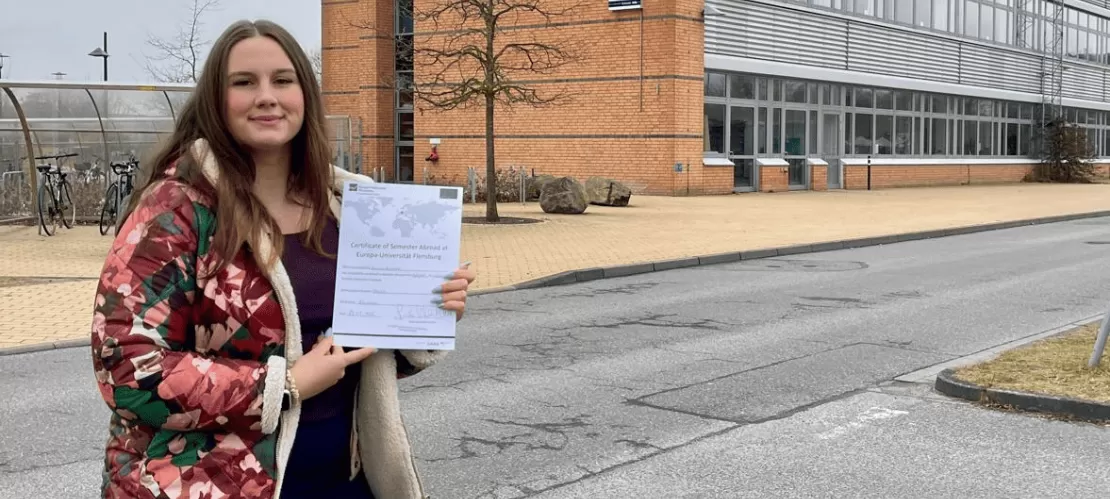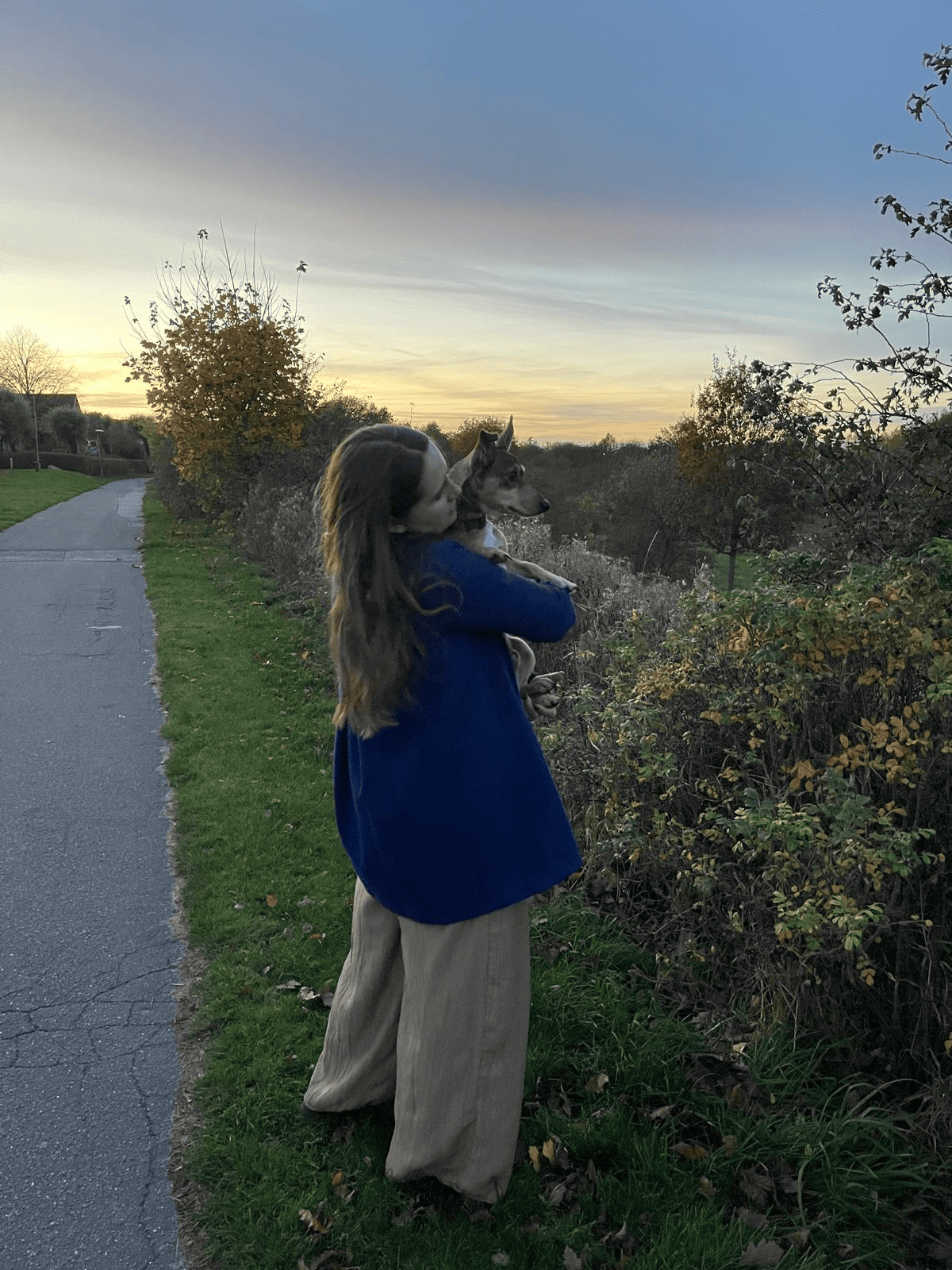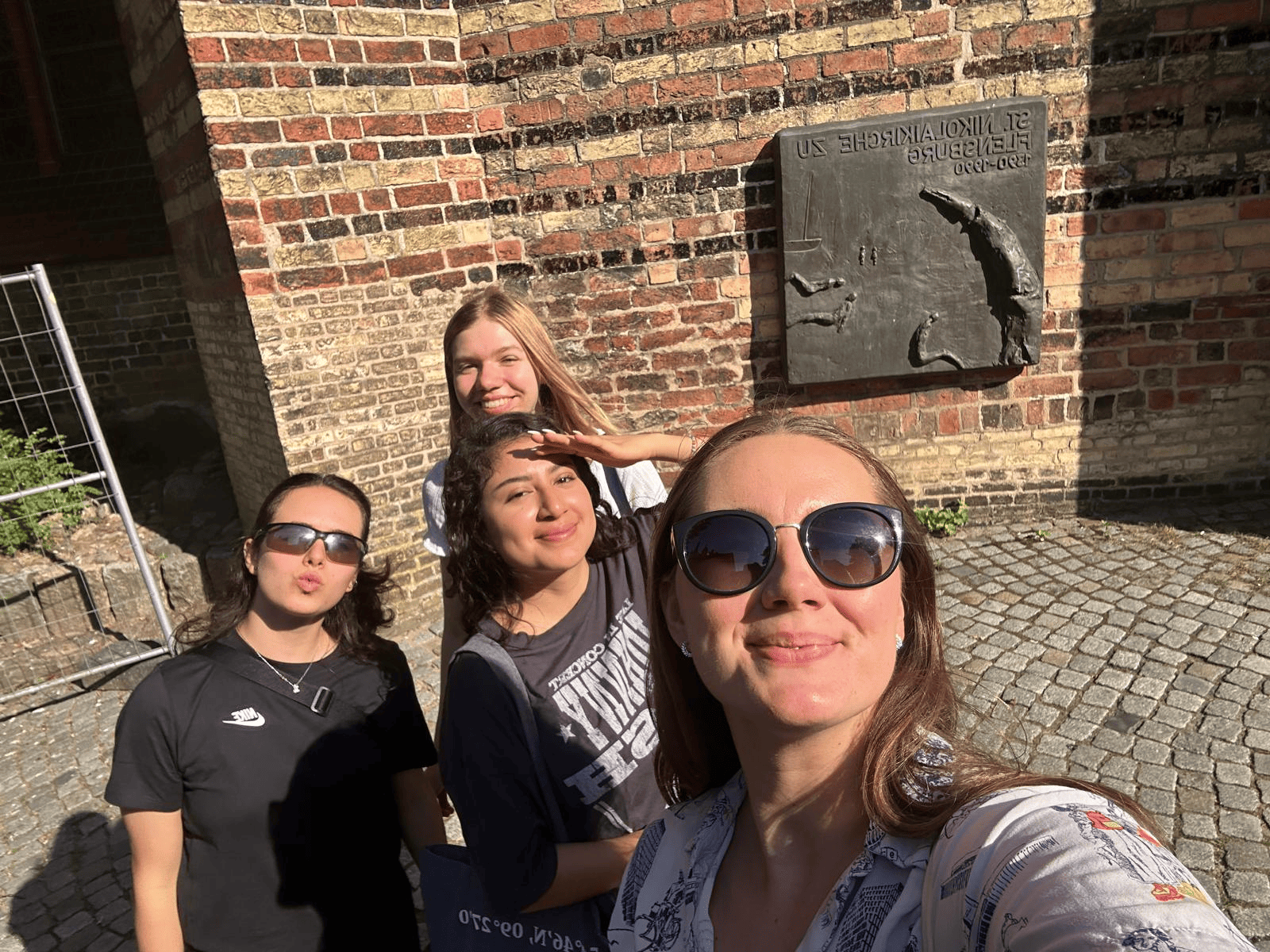
For Joanna Brylewska, Erasmus has never been just about studying in a different country—it’s about discovering new ways of learning, living and connecting across cultures. After completing her second Erasmus journey as a student, she is now looking back on the experience that tested her limits and expanded her perspective in unexpected ways.
E: During your Erasmus exchange, you managed courses in Germany and online studies in Poland simultaneously. How did you prioritise tasks and maintain academic performance across different educational systems?
J: Fortunately, the deadlines for both programmes didn’t overlap too often, which made things more manageable. I do sometimes struggle with prioritising tasks, but in this case, it wasn’t too difficult. The biggest challenge was staying organised. I had to send numerous emails to my professors in Poland to ask whether it would be possible to take exams online. Sometimes I had to follow up once or twice before getting a response.
What helped me the most was that my German exams were primarily written essays, which gave me more flexibility. I could work on them alongside preparing for Polish exams when necessary.
Balancing both systems taught me a lot about time management and adaptability. I had to be proactive, plan ahead and constantly adjust to different expectations and academic cultures. Looking back, it was demanding, but it really improved my organisational skills and gave me confidence in handling complex situations independently.
On top of that, I brought my dog with me to Denmark, which added an extra layer of responsibility—and fun! He made sure I never spent too much time at my desk without a break. Daily walks became a great way to reset, clear my head and keep a bit of balance in the middle of all the academic pressure.

E: Commuting between Aarhus and Flensburg presented logistical challenges. What strategies did you employ to manage time effectively, and how did this experience enhance your problem-solving skills?
J: I definitely had to plan ahead, mainly because booking trains in advance made them much cheaper. Once I had my schedule set, I really had to stick to it. The biggest challenge was the early starts; on days when I had morning classes, I had to leave around 4 or 5 a.m.
Luckily, Danish trains had reliable Wi-Fi, so I tried to use that time productively—reading, writing or catching up on coursework. That said, there were definitely mornings when I just needed a nap!
This whole experience pushed me to think ahead and manage my time down to the hour. I became much more disciplined and learned how to make the most of even short pockets of time. It also taught me to stay calm and adaptable when things didn’t go according to plan, like unexpected train cancellations or delays. Developing that flexibility has helped me handle challenges in other areas of life with more confidence and resilience.
E: As ESN Poland’s Communication Manager, you played a key role in organising workshops. How did your Erasmus experience shape your leadership style and approach to cross-cultural communication within international student communities?
J: While organising workshops isn’t officially listed in my portfolio, it’s definitely something I’ve grown very interested in through my involvement with ESN. My Erasmus experiences—first in Portugal, and later in Germany—really opened my eyes to the different ways people communicate, collaborate and interpret things depending on their cultural background.
Spending time abroad helped me build a strong foundation in intercultural understanding—not just in theory, but through everyday interactions with students from all across Europe. What I’ve taken from that into my ESN role is the importance of empathy, clear communication and adaptability.
I wouldn’t say I’ve mastered it, but I’ve become much more aware of the subtle nuances in how messages are received, depending on the context and audience. I’ve also gained a better sense of how to make communication feel inclusive and engaging for both international and local students. And because I’ve experienced life both abroad and at home, I feel I bring a helpful ‘in-between’ perspective—able to relate to both sides and help bridge cultural gaps when needed.
E: Facing challenges like your stolen bike required quick thinking and adaptability. Can you share how you responded to unexpected obstacles during your Erasmus stay and what this taught you about resilience?
J: Yes, my bike getting stolen was definitely one of those unexpected moments that threw me off. I used it every day to get around, so suddenly losing it really disrupted my routine. At first, I was frustrated, especially being in a new country where everything already felt unfamiliar. But after the initial stress wore off, I realised I had to adapt quickly.
I looked into alternative ways to get to class—started using public transport more, asked friends for help when needed, and even walked longer distances on some days. It wasn’t ideal, but I made it work. That experience, small as it may seem, reminded me that you can’t always control what happens, but you can control how you respond.
E: Your Erasmus journey broadened your perspective on inclusive education concerning religion and race. Could you elaborate on these insights and how they might influence your future endeavours in education?
J: That perspective really came from two specific classes I took during my Erasmus in Germany. One focused directly on inclusion in education, particularly in terms of religion, race and migration, while the other looked at Europe as an educational space and how systems across the continent deal with diversity.
What stood out to me most was how openly these topics were discussed in the German curriculum, especially compared to what I’d encountered back in Poland. I realised there’s a significant gap when it comes to inclusion being meaningfully addressed in Polish teacher training or educational policy.
During the course, I read a lot of articles and case studies on how different countries approach inclusion, and we had in-depth discussions about the challenges and opportunities diversity brings into the classroom. Germany, for instance, is actively dealing with the realities of a more multicultural student population, and it was eye-opening to see how that shapes their policies and practices.
I also wrote my final essay on the topic of inclusion in schools, which gave me the chance to dive deeper into the subject. This experience really stayed with me and made me reflect on what kind of educator I want to be. I hope to take what I’ve learned and apply it in future roles—whether that’s by promoting more inclusive teaching methods, advocating for curriculum changes, or simply being more aware and sensitive to the different backgrounds my future students might come from.

